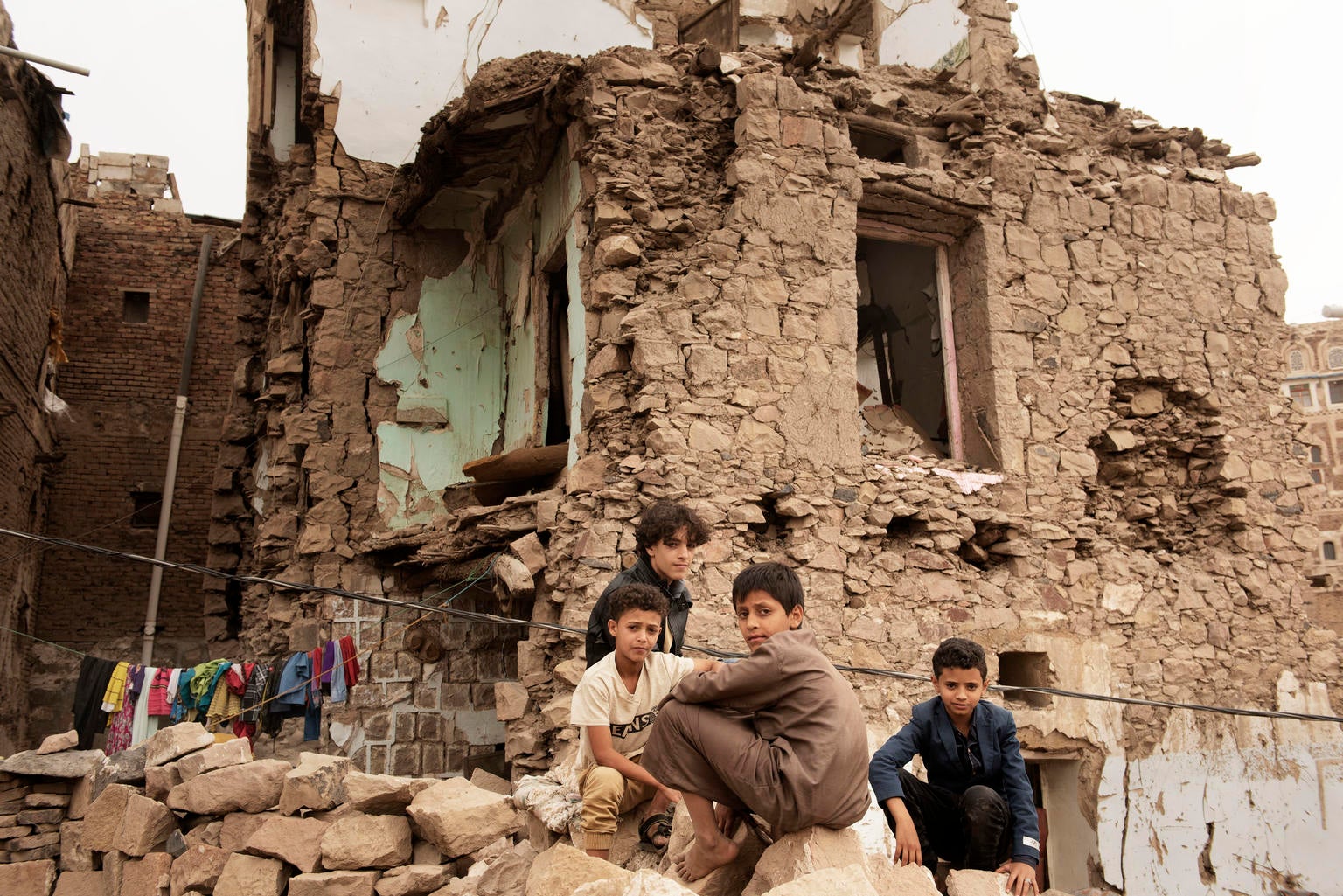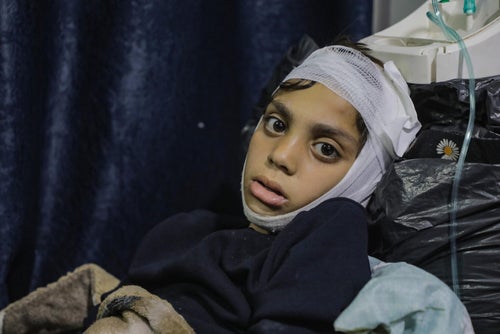The country’s healthcare system has been destroyed by over five years of civil war. Its ongoing battle with cholera and dengue outbreaks leaves it especially vulnerable to the pandemic.
“It is a serious concern for UNICEF,” says Harriet, UNICEF’s Communications Specialist in Yemen.
“The salaries of many healthcare workers haven’t been paid in years, supplies are scarce, and staff are dealing with layers of health issues for children - from malnutrition to not being vaccinated to ongoing insecurity.
“The additional threat of COVID-19 brings a new dimension of challenges in delivering vital aid,” she says.
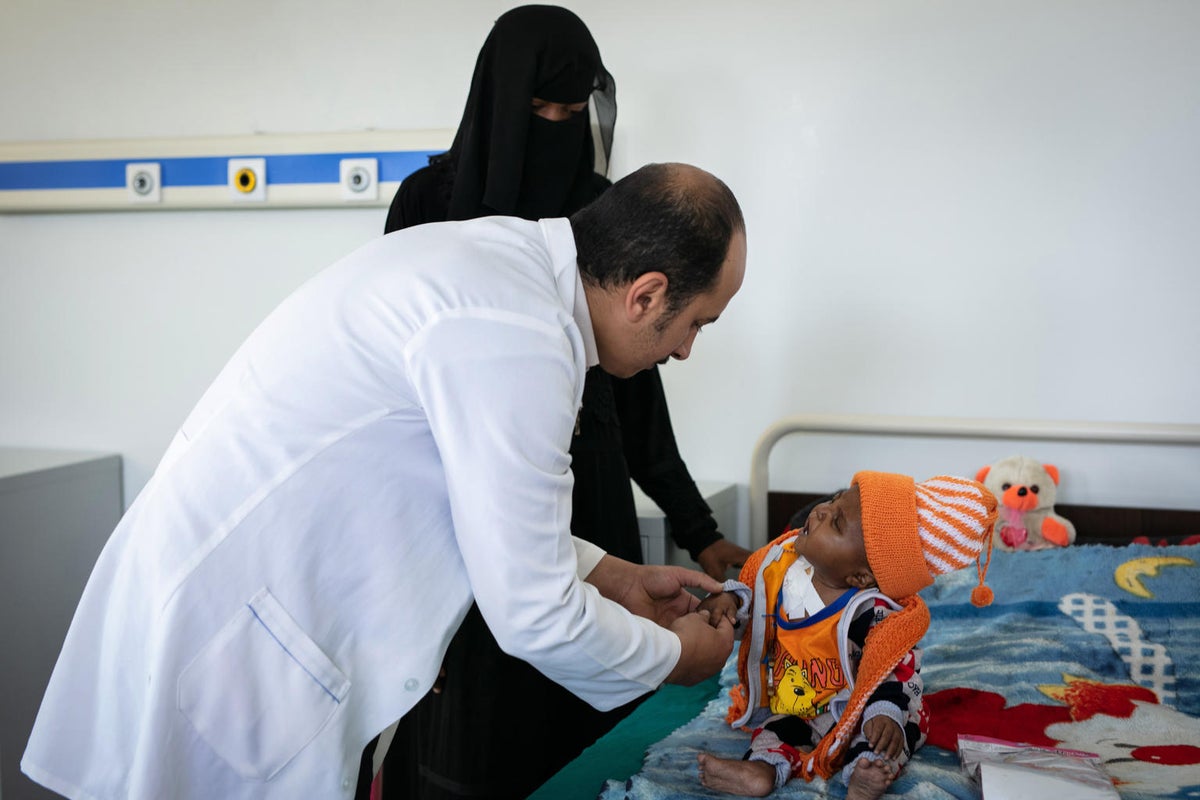
"The additional threat of COVID-19 brings a new dimension of challenges in delivering vital aid."
Yemen’s healthcare system is already on the brink of collapse leaving little capacity to respond to a pandemic. UNICEF and partners have tried to keep the health system functioning but still, only 51 per cent of health facilities are operational.
Over the past few years, UNICEF has run mobile health teams in a bid to fill the gap and provide communities who are unable to access facilities with vital healthcare.
But a growing outbreak of coronavirus could put those efforts at risk, with health workers likely to be diverted back into health facilities, leaving children and their families in vulnerable, hard-to-reach communities without any access to healthcare.
“I think, like everywhere, the community is anxious about COVID-19. Fears are echoed by health workers who already have so much to grapple with,” Harriet says.
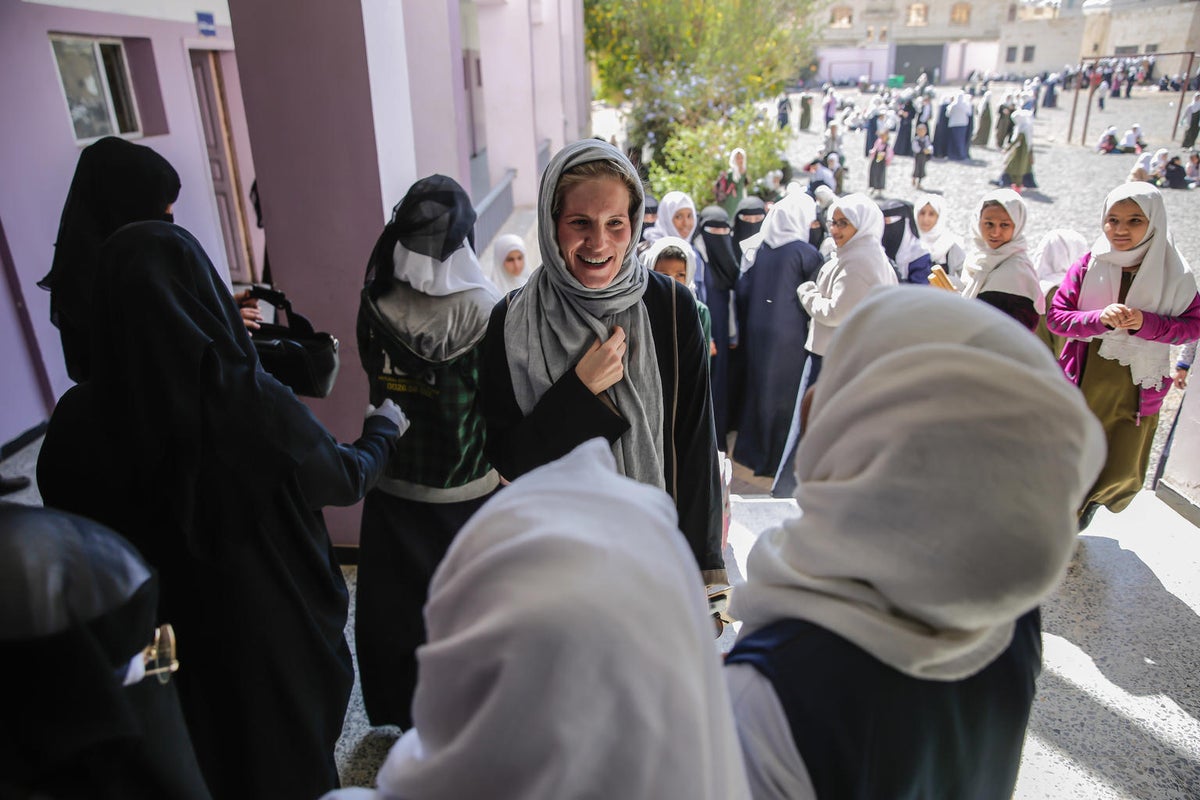
UNICEF has undertaken a range of prevention activities including working with a wide network of community mobilisers to spread health information and messaging through radio and television ads, peer educators and religious leaders.
We are also bringing in supplies, personal protective gear for health workers and soap for the community.
Harriet says now, more than ever, UNICEF’s work is vital in ensuring every child is protected.
“As attention shifts from what is already too often a forgotten conflict in Yemen to this global pandemic, the fact that UNICEF is staying and delivering offers some solace and hope for communities across the country who have already had to deal with so much,” she says.
Even without the coronavirus pandemic and despite progress towards peace, more than 12 million children need humanitarian aid.
“That means that almost every child in Yemen needs some form of assistance,” Harriet says.
“That is staggering and will be only compounded if COVID-19 spreads.”
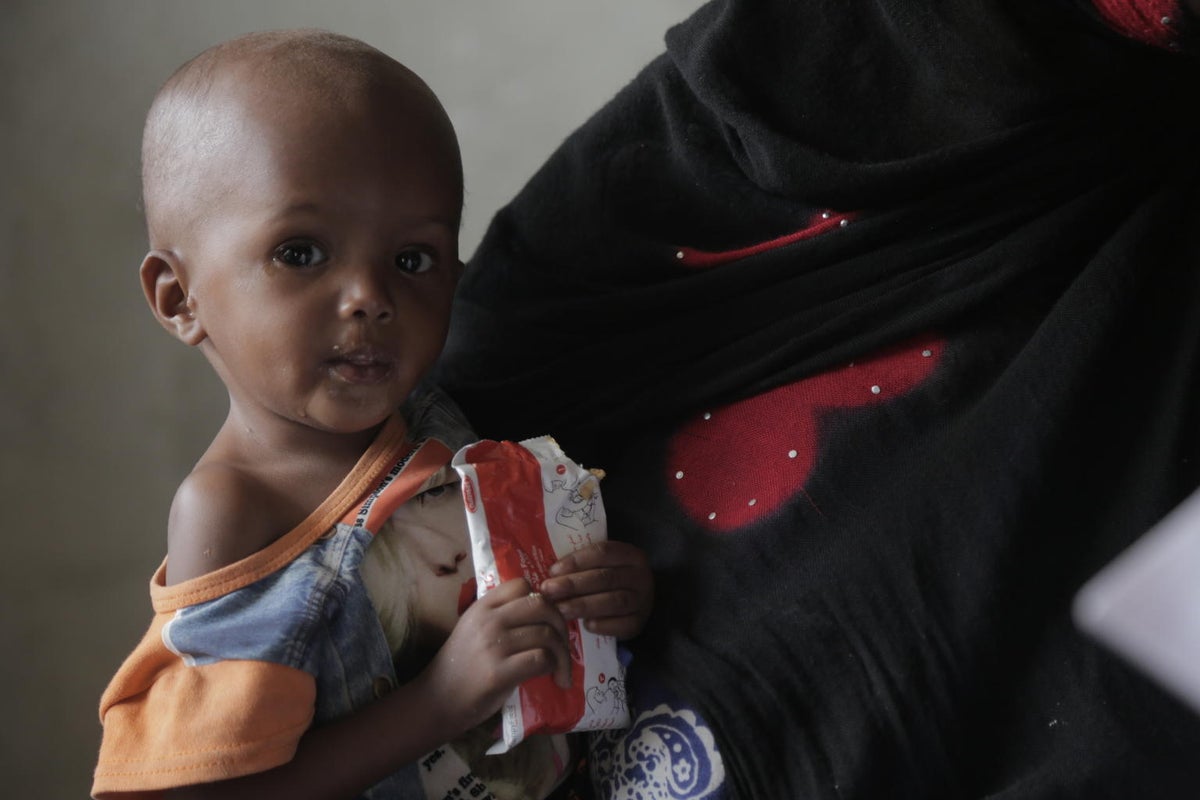
"For millions of children in this country, our work is the difference between life and death."
Despite the ongoing violence, the challenges brought on by difficult terrain and access, as well as the added layer of complexity brought by the COVID-19 pandemic, UNICEF continues to provide vital humanitarian assistance to children in need.
“We continue to support treatment and prevention messaging for diarrhoea, cholera and dengue, and in February alone, vaccinated almost 57,000 children against whooping cough, tetanus, hepatitis B and diphtheria”
UNICEF is also supplying safe drinking water to major cities and rural areas as well as emergency latrines, hygiene kits and promoting good hygiene practices to tens of thousands of internally displaced people.
“We know there are so many other challenges that children face in the country,” Harriet says.
"The aim is to continue to deliver the humanitarian assistance that keeps them alive. For millions of children in this country, our work is the difference between life and death.”
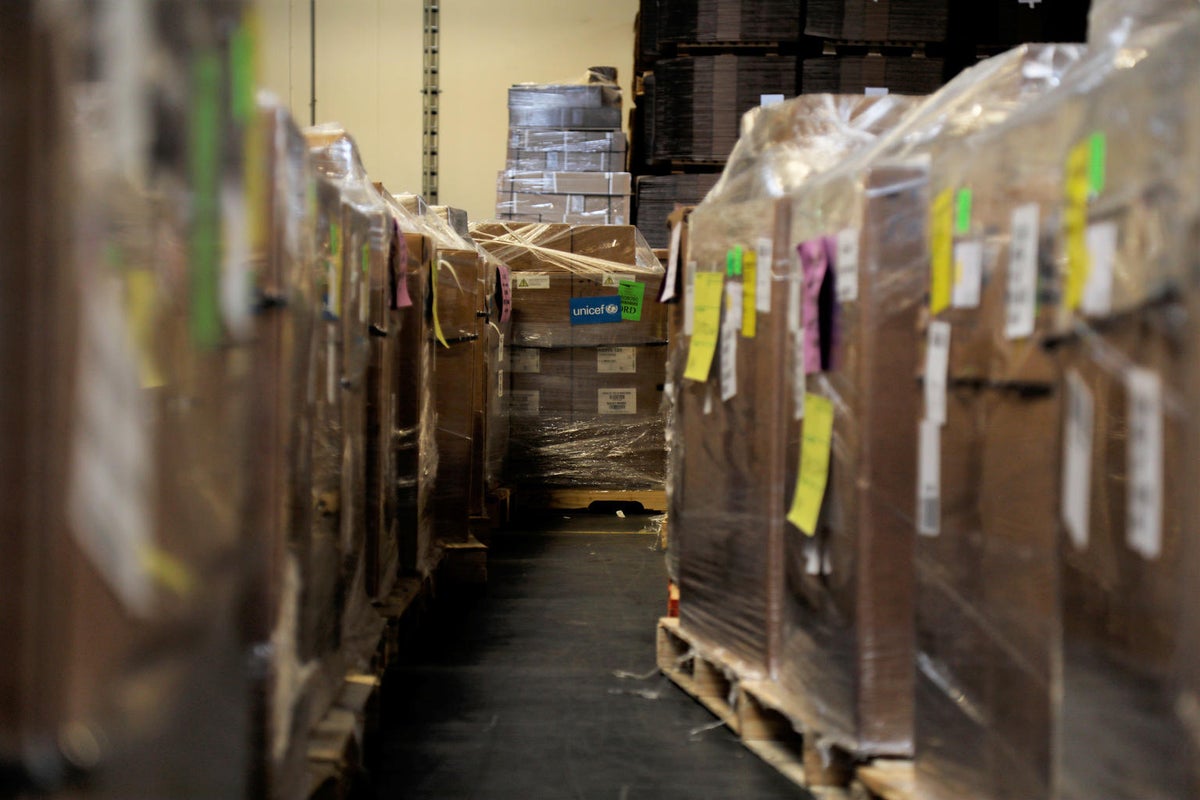
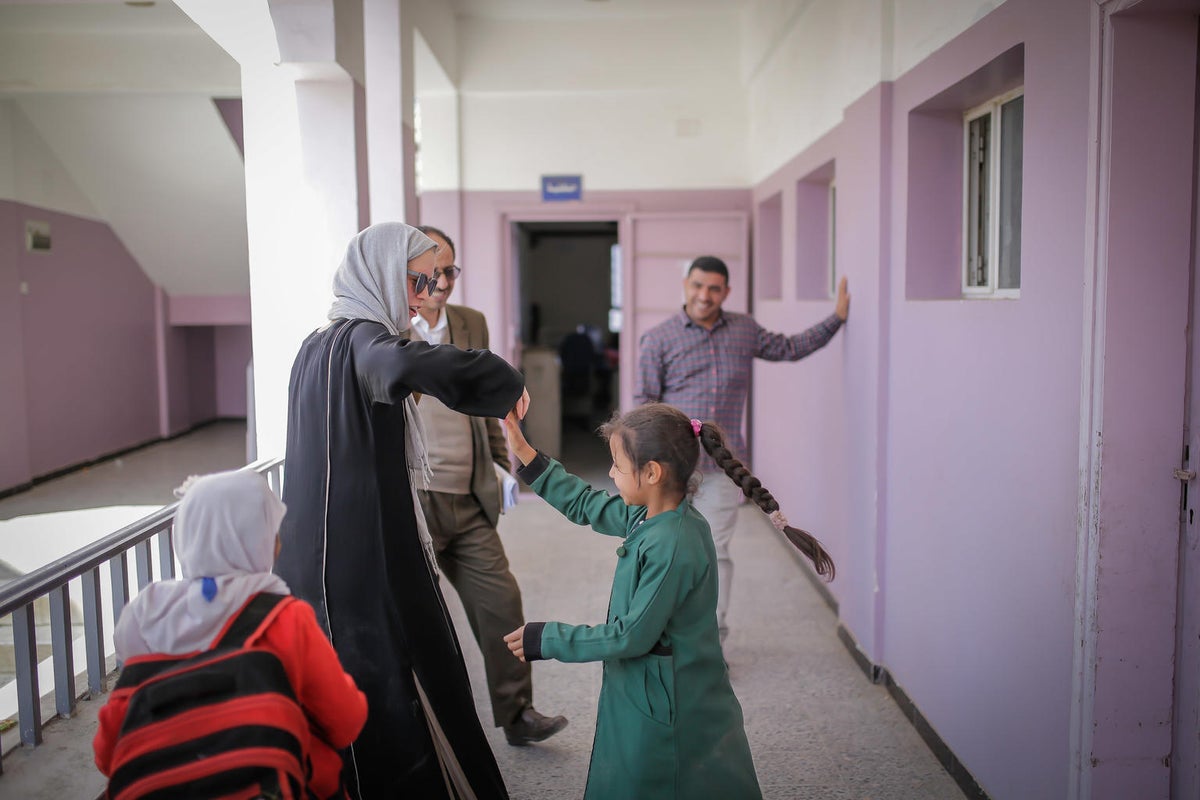
Related articles
Stay up-to-date on UNICEF's work in Australia and around the world



